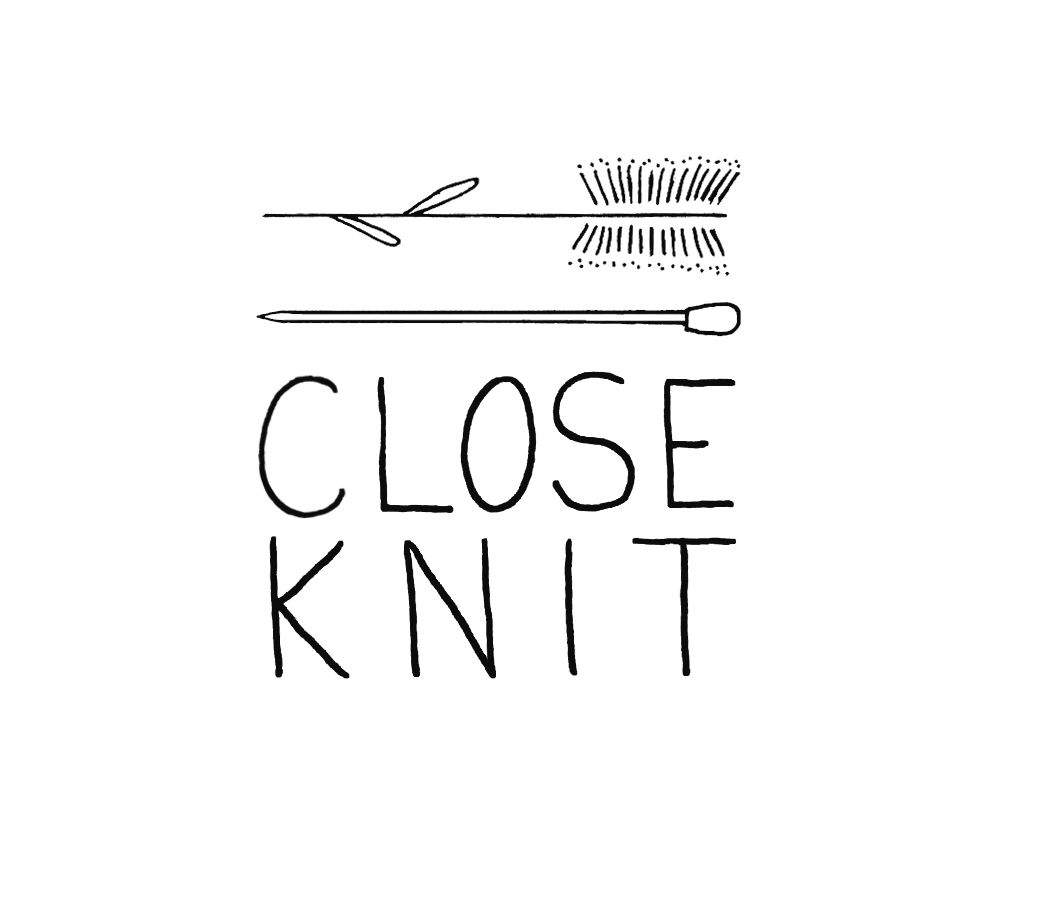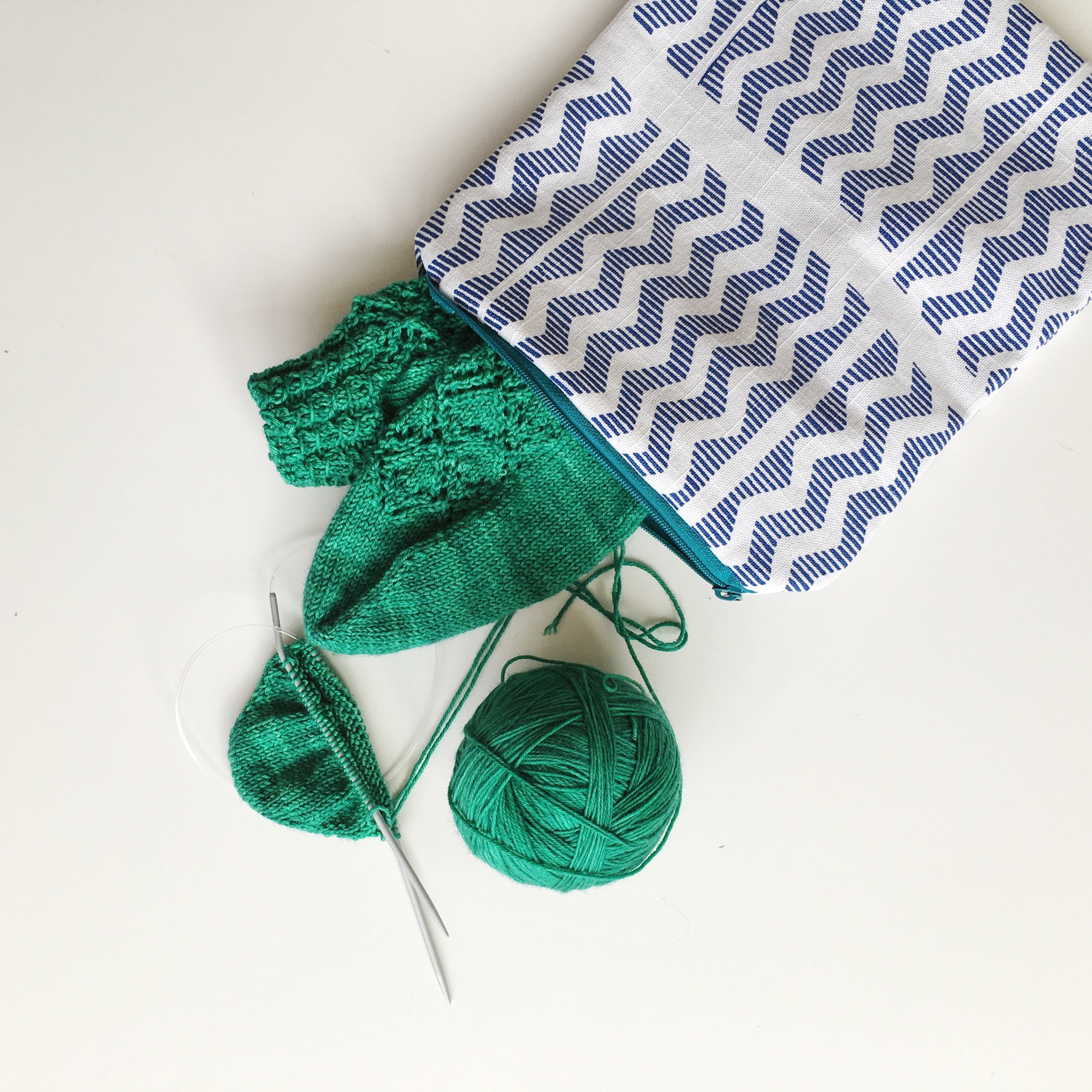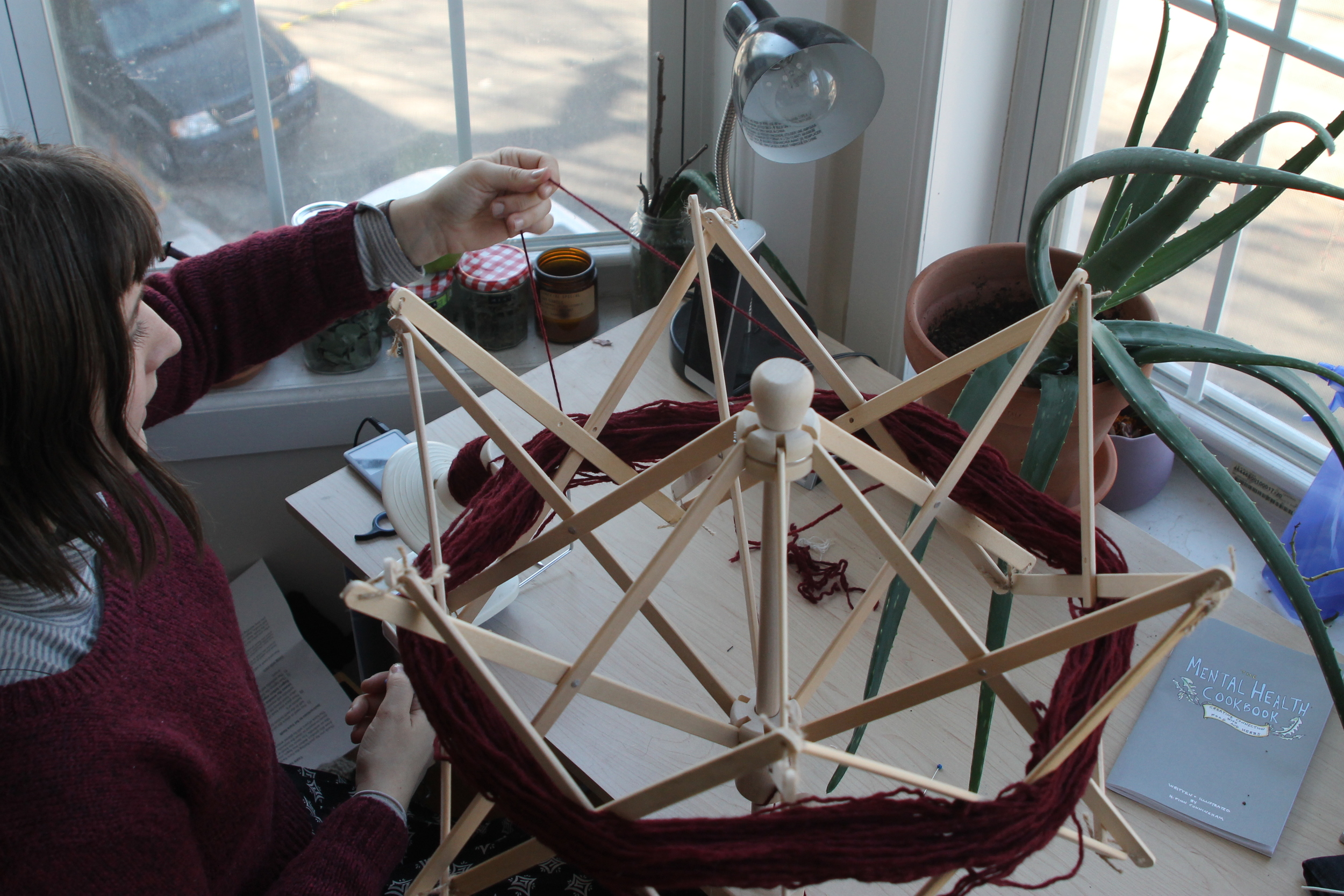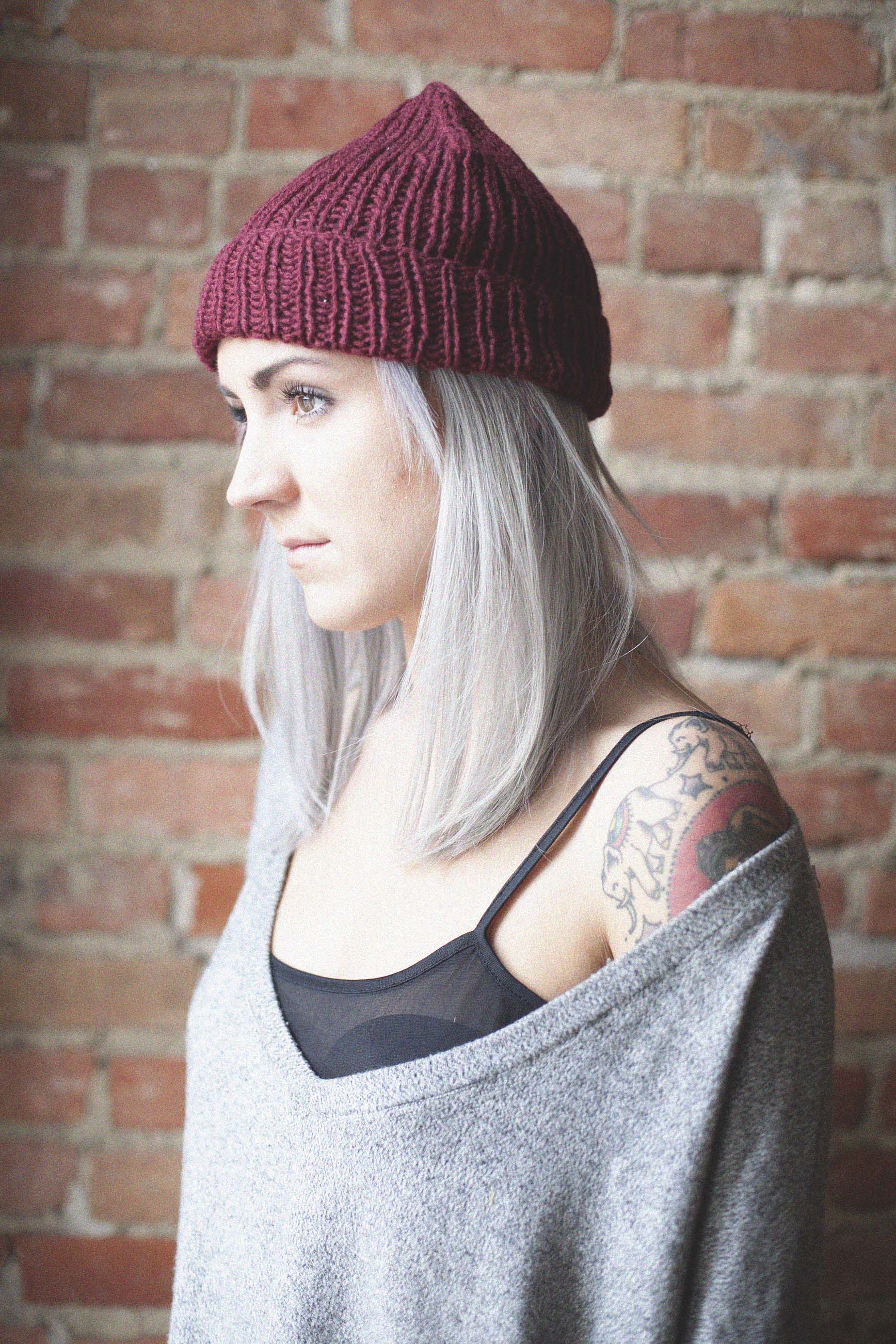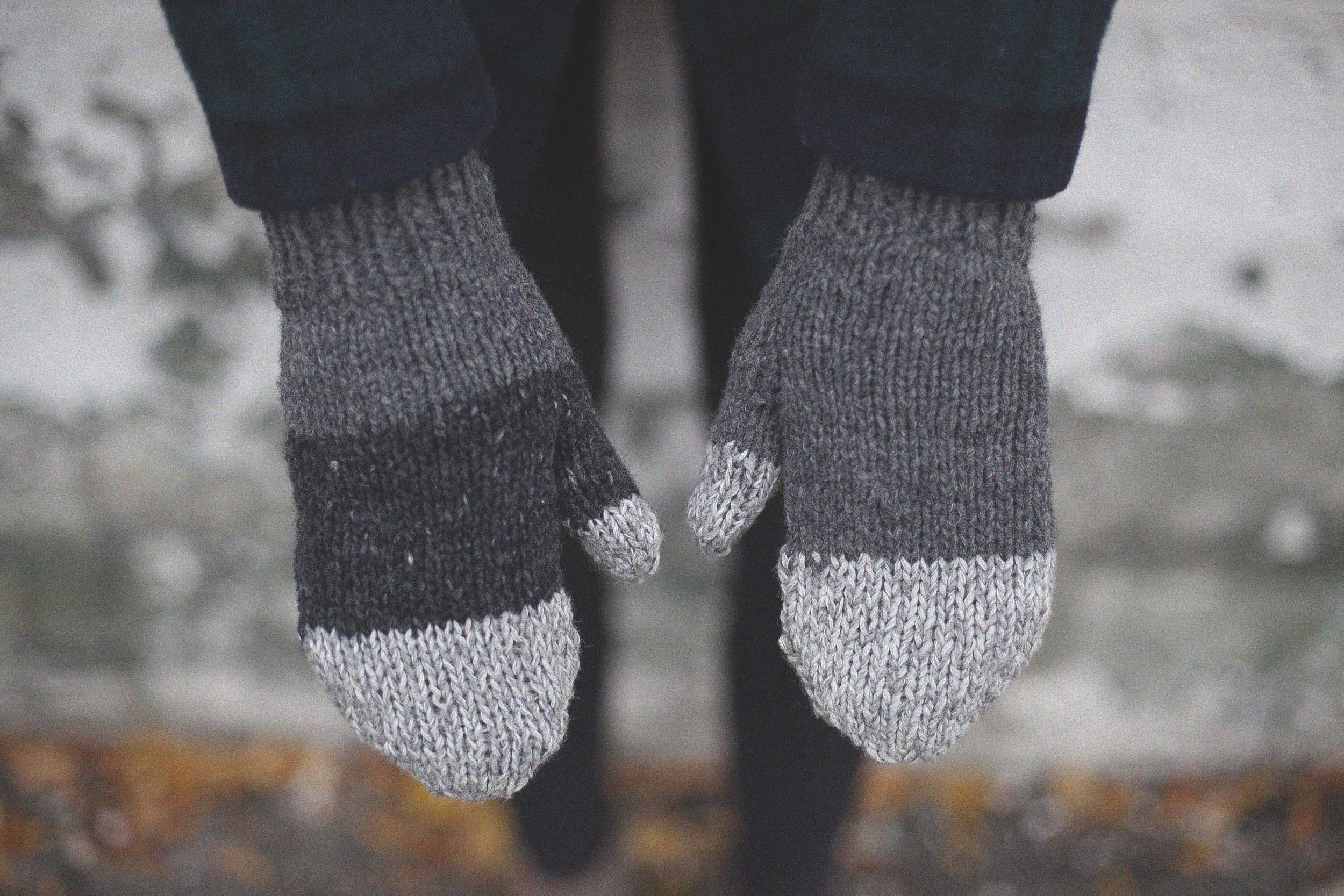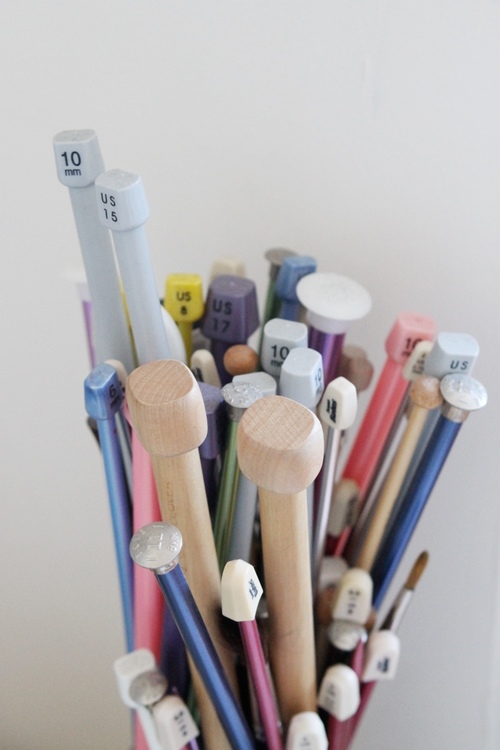EPISODE TWENTY :: Sophe Probst of Urban Roots Handmade - Moving Toward Zero Waste + Asking For What You Want
The Close Knit podcast showcases artists, designers, and makers from all over the world who work with fibre in its many forms. Knitters, spinners, sewers, textile artists - all will be celebrated on the Close Knit podcast.
A huge thank you to this week's episode sponsor - Hanna Lisa Haferkamp.
Hanna Lisa is a creative maker and business coach who works with other small business owners to help them achieve their goals. In addition to coaching, she runs her very own video podcast where she talks about her experience making and running a creative business. You can find that on Youtube at Hannaontheroad (all one word - no second “H” in hanna).
In her spare time, Hanna makes gorgeous project bags for the modern knitter. Frustrated with the project bags on offer, she set about designing her own to meet her minimalist aesthetic and her needs as a knitter - like yarn not getting tangled up! She does a shop update once or twice a month, and you can find out about those via her instagram or her podcast.
As a special treat For Close Knit Podcast Listeners, Hanna is offer a discount on her project bags! Enter the code CLOSEKNIT at checkout to get 10% off her project bags!
Thanks again to Hanna Lisa for this generous offer and for sponsoring the Close Knit Podcast.
This week I spoke to Sophe Probst of Urban Roots Handmade. Sophe is a zero-waste advocate living in Louisiana, making and selling minimally packaged linen and hemp linen products for the home and the body. She discovered hemp when she was looking for environmentally-friendly options to make herself dresses, after seeing Sonya Philip's 100 Acts of Sewing patterns and getting hooked. Before starting her shop, Sophe worked for a number of environmental organisations that fuelled her desire to run a business in a thoughtful way. She then started learning about the zero waste movement from the likes of Bea Johnson of Zero Waste Home, and she began looking for ways to incorporate minimalism into her life.
After becoming a mother, Sophe began questioning the legacy she would leave for her children, and this led her to starting Urban Roots Handmade. We talk about the realities of running a business as a mother - this means a lot of time spent in the wee hours of the morning sewing - and how she plans to handles business growth without compromising on her ethics. We also get into some of the nitty gritty of how she learnt to price her work, and how she handles the finances of her business.
In her former working life, Sophe worked for a number of environmental organisations, and worked as an environmental educator. When she had her children, it made her question things, and she became emotionally tied to her children’s legacy. She started by sewing their cloth diapers, then got into zero waste reading like Bea Johnson, which led her to start refusing plastic and being more minimalist in her lifestyle. She often struggled to reconcile the idea that she was making new stuff with a minimalist/zero waste lifestyle, so she decided to do it plastic free. She asked her suppliers to ship plastic free, and she changed the way she made things to be less wasteful to fit into her ethos.
Sophe learnt to sew as a child, her grandmother taught her to sew at age 10, and she made her first quilt in high school (she hand quilted it!). She reckons that introduction to sewing on a machine made her much less intimidated by using the machine as an adult. Her grandmother also taught her to knit, but Sophe reckons she's a bit slower at knitting (than sewing).
Something Sophe cherishes about being a small business is the personal contact she has with her customers. She always includes a handwritten note in her packages, and we talk about how this informs her decisions with wholesaling and growing her business.
Sophe's biggest bit of advice:
"I’m a big believer in buying quality. I bought the nice sewing machine, the one that was built to last, and I think that has made me want to sew more than if I was sewing on a plastic piece of crap.
And asking for things that you want. That’s been hard for me because I’m shy. Asking for what you want, and if you don’t get it, then move on, but if you do, it’s because you asked. “
People/ Things we mentioned in the podcast:
Sonya Phillips - 100 Acts of Sewing - Ani and Sophe both gush about their love for Sonya's patterns, their simplicity and beauty.
Bea Johnson Zero Waste Home - how Sophe was introduced to the idea of zero waste and what prompted her to start incorporating plastic free methods into her life.
Honeybee good - Sophe's supplier of wooden spool organic cotton thread, they ship in plastic free packaging.
Maura Grace Folk Fibers - natural dyer, amazing quilter
Sugarhouse Workshop - as above! (natural dyer, amazing quilter)
Jana Valachovicova - maker of recycled textiles
Trash is for Tossers - another great zero waste resource
Adrienne Shanti @jai_jai_ma - a personal fav of Ani's, as well as Sophe's. We just love Adrienne!
Find Sophe: website | instagram | facebook
Want more?
- Subscribe: Itunes or Pocket Casts
Like what you're hearing?
Awesome! I'm glad you've found your way to this podcast. Please feel free to subscribe, leave a review on iTunes (this makes all the difference to reaching more people!) and share with your loved ones. Thanks for tuning in.
Until next time!
xx
Ani
